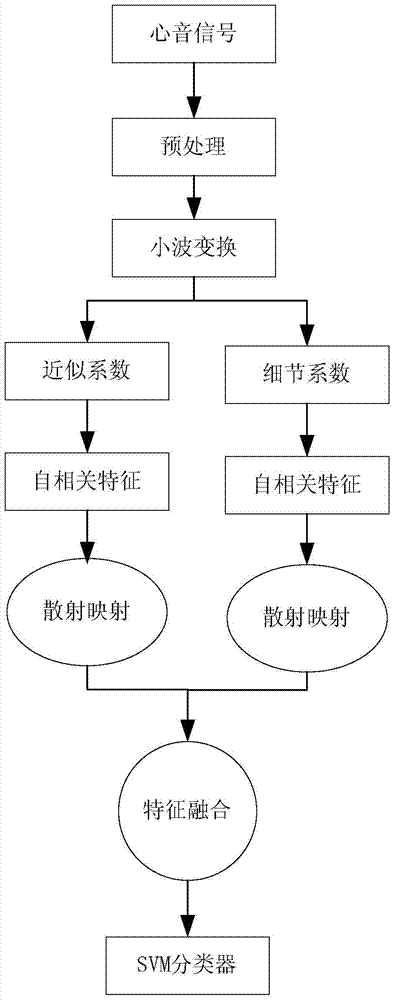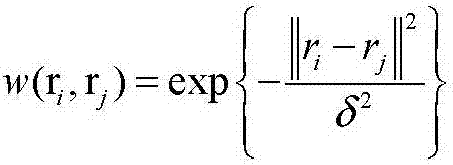A method for identifying abnormal heart sounds based on subband energy envelope autocorrelation features
A technology of autocorrelation features and identification methods, applied in special data processing applications, instruments, electrical digital data processing, etc., can solve problems such as dependence, inability to adapt to noisy environments, inability to handle variable-length input signals, etc., to improve robustness The effect of avoiding heart sound segmentation process and improving the recognition performance
- Summary
- Abstract
- Description
- Claims
- Application Information
AI Technical Summary
Problems solved by technology
Method used
Image
Examples
specific Embodiment approach 1
[0041] Specific embodiment one: the abnormal heart sound recognition method based on the sub-band energy envelope autocorrelation feature described in this embodiment is realized by the following steps:
[0042] Step 1. Heart sound preprocessing
[0043] The input heart sound signal is energy-standardized, then down-sampled to 2 kHz, and a 6-order Butterworth filter (20-900 Hz) filter is used to band-pass filter the down-sampled heart sound signal to filter out the cut-off Other sounds and noises other than frequencies; Note: Assuming that the sampling frequency of the input heart sound signal is higher than 2kHz, the sampling frequency of the output signal after preprocessing is approximately 2kHz;
[0044] Step 2. Extract the average Shannon energy envelope
[0045] (1) The preprocessed heart sound signal with a sampling frequency of 2kHz is decomposed into 4 levels using the 4th-order Daubechies wavelet to obtain: an approximate coefficient sequence a 4 and four detail co...
PUM
 Login to View More
Login to View More Abstract
Description
Claims
Application Information
 Login to View More
Login to View More - R&D
- Intellectual Property
- Life Sciences
- Materials
- Tech Scout
- Unparalleled Data Quality
- Higher Quality Content
- 60% Fewer Hallucinations
Browse by: Latest US Patents, China's latest patents, Technical Efficacy Thesaurus, Application Domain, Technology Topic, Popular Technical Reports.
© 2025 PatSnap. All rights reserved.Legal|Privacy policy|Modern Slavery Act Transparency Statement|Sitemap|About US| Contact US: help@patsnap.com



